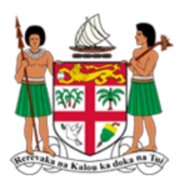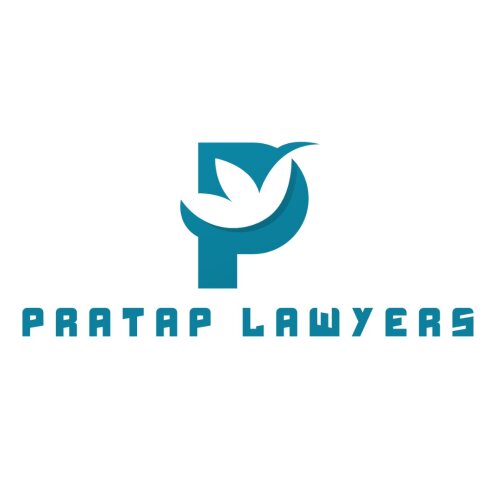Best Project Finance Lawyers in Suva
Share your needs with us, get contacted by law firms.
Free. Takes 2 min.
List of the best lawyers in Suva, Fiji
About Project Finance Law in Suva, Fiji
Project Finance is a specialized area of law that deals with the financing of large infrastructure and industrial projects. In Suva, Fiji, this typically involves investments in sectors such as energy, transportation, water, telecommunications, and commercial developments. Project Finance focuses on structuring complex financial arrangements so that the funding is secured primarily by the project's future revenue streams and its assets, rather than the sponsors' own balance sheets. Legal advice in this area ensures that all parties’ interests are protected, risks are managed, and transactions comply with statutory and regulatory requirements.
Why You May Need a Lawyer
There are several common scenarios in Suva where you might need legal assistance with Project Finance:
- Negotiating finance or loan agreements for a major infrastructure project
- Establishing project companies or joint ventures to deliver large-scale developments
- Ensuring compliance with Fijian laws and regulations for foreign investment and environmental impact
- Structuring risk allocation and performance guarantees between multiple parties
- Drafting and reviewing construction, supply, and offtake contracts
- Advising on security arrangements and the enforceability of collateral
- Assisting with dispute resolution or negotiations arising during a project’s lifecycle
- Navigating processes for governmental permits, land acquisition, or local approvals
Because of the high value and complexity involved in these types of projects, expert legal guidance has a significant impact on project success and compliance.
Local Laws Overview
In Suva, Fiji, Project Finance is influenced by a combination of national laws, regulations, and sector-specific rules. Key legal and regulatory aspects include:
- Companies Act 2015: Regulates company formation, governance, and shareholders’ rights for entities engaging in project finance activities.
- Foreign Investment Act 1999: Sets requirements for foreign investors, including registration and sectoral restrictions.
- Land Use and Tenure: Land in Fiji commonly falls under native (iTaukei), freehold, or state land with unique leasing and acquisition processes regulated by the iTaukei Land Trust Board or Lands Department.
- Environmental Management Act 2005: Mandates environmental approvals and impact assessments before project commencement.
- Banking and Securities: The Reserve Bank of Fiji governs banking regulations, foreign exchanges, and security interests.
- Public Private Partnerships Act 2017: Details the framework for collaboration between government and private partners in major projects.
- Taxation: Income and withholding tax obligations relevant to project finance are governed by the Fiji Revenue and Customs Service.
Understanding how these and related laws interact is vital to securing approvals, mitigating risks, and ensuring efficient project delivery in Suva.
Frequently Asked Questions
What kinds of projects typically use Project Finance in Suva, Fiji?
Project Finance is most commonly used for infrastructure projects such as energy generation plants, road and bridge construction, water and sanitation systems, ports, airports, and large commercial property developments.
Who are the main parties involved in a Project Finance transaction?
Typical parties include project sponsors, lenders (such as local or international banks), the government, contractors, suppliers, and sometimes multilateral agencies or export credit agencies.
Is foreign investment allowed in Project Finance projects in Fiji?
Yes, foreign investment is permitted but subject to registration and compliance with the Foreign Investment Act and any sectoral restrictions for sensitive industries.
How is land for projects acquired in Fiji?
Land can be acquired as freehold or leased from the iTaukei Land Trust Board or the State, depending on the category. The process involves negotiation, legal documentation, and, for native land, adherence to traditional and statutory requirements.
What are the key risks in Project Finance transactions in Fiji?
Major risks include regulatory changes, failure to obtain permits, land acquisition issues, political risk, financial risks like foreign exchange or interest rate shifts, and construction delays or disputes.
Do I need a local partner to conduct a Project Finance transaction in Fiji?
This depends on the sector and the nature of the project. Some sectors encourage or require local partnership to streamline approvals and access local expertise or resources.
What is an offtake agreement?
An offtake agreement is a contract between the project company and a buyer who agrees to purchase some or all of the project’s output, such as electricity or water. These agreements help secure the project’s future revenue.
How do I obtain environmental approvals for my project?
Projects must undergo environmental impact assessments as mandated by the Environmental Management Act. Approval is granted by the Department of Environment after thorough evaluation and public consultation where applicable.
How are disputes resolved in Project Finance arrangements?
Disputes may be resolved through negotiation, mediation, arbitration, or court proceedings. It is common to specify dispute resolution procedures in project and finance contracts.
What are the tax implications for Project Finance in Fiji?
Taxation will vary based on project type and structure, but may include income tax, withholding tax on payments to offshore parties, stamp duty, and potential tax incentives for qualifying investments. Consultation with a tax lawyer or accountant is recommended.
Additional Resources
If you need more guidance or support, consider reaching out to the following organizations and bodies:
- Fiji Investment Promotion Agency (Investment Fiji)
- Reserve Bank of Fiji
- Ministry of Commerce, Trade, Tourism and Transport
- iTaukei Land Trust Board
- Fiji Revenue and Customs Service
- Ministry of Environment
- Fiji Law Society
These entities can provide up-to-date information on regulations, policy changes, and sector-specific procedures relevant to project finance.
Next Steps
If you are planning, negotiating, or managing a Project Finance transaction in Suva, Fiji, your next steps should include:
- Consulting with a qualified local lawyer with experience in Project Finance
- Gathering all necessary project and financial documentation for legal review
- Identifying key permits and approvals required for your project type and location
- Engaging with relevant government agencies early in your project planning process
- Ensuring you understand your tax, contractual, and risk management obligations
Early legal advice can help you avoid costly errors, secure the necessary approvals, and structure your project for long term success. Reach out to a knowledgeable Project Finance lawyer in Suva for tailored guidance.
Lawzana helps you find the best lawyers and law firms in Suva through a curated and pre-screened list of qualified legal professionals. Our platform offers rankings and detailed profiles of attorneys and law firms, allowing you to compare based on practice areas, including Project Finance, experience, and client feedback.
Each profile includes a description of the firm's areas of practice, client reviews, team members and partners, year of establishment, spoken languages, office locations, contact information, social media presence, and any published articles or resources. Most firms on our platform speak English and are experienced in both local and international legal matters.
Get a quote from top-rated law firms in Suva, Fiji — quickly, securely, and without unnecessary hassle.
Disclaimer:
The information provided on this page is for general informational purposes only and does not constitute legal advice. While we strive to ensure the accuracy and relevance of the content, legal information may change over time, and interpretations of the law can vary. You should always consult with a qualified legal professional for advice specific to your situation.
We disclaim all liability for actions taken or not taken based on the content of this page. If you believe any information is incorrect or outdated, please contact us, and we will review and update it where appropriate.
















